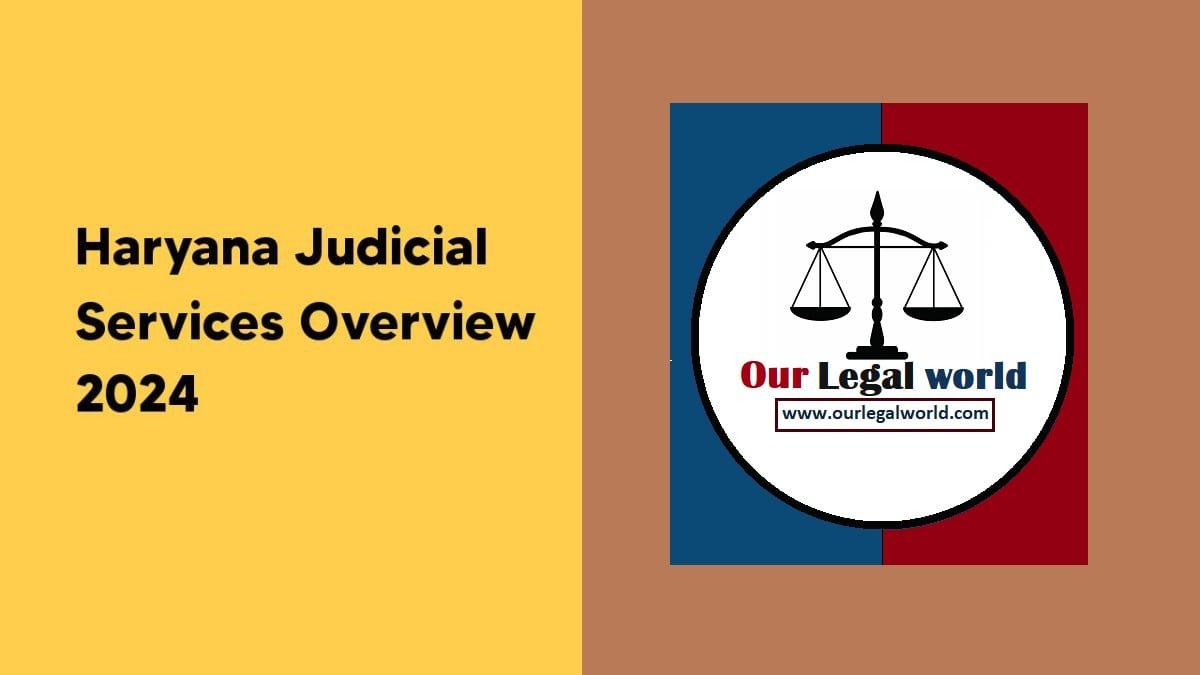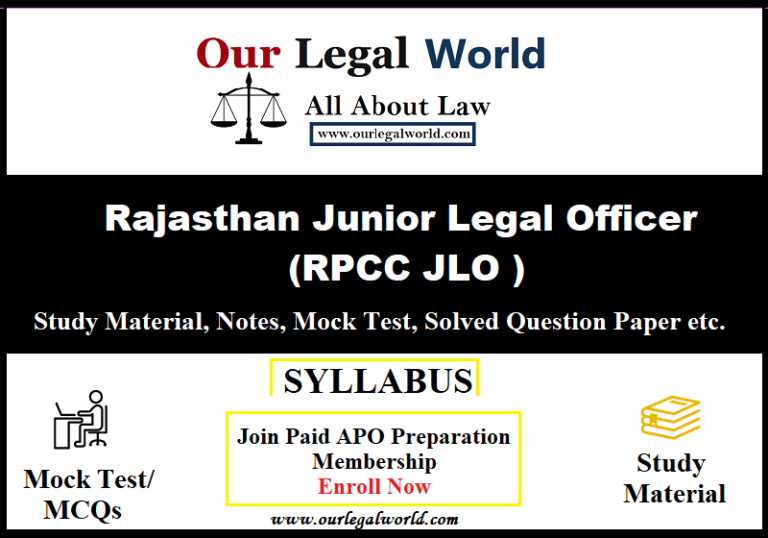Syllabus UPPCJ 2022: Uttar Pradesh Judicial Services
The intake process for UP Judicial Services will happen in 3 phases:
- Preliminary Exam (Objective type)
- Main Exam (Subjective type)
- Interview
The number of candidates to be admitted to the main examination will be 15 times the total number of vacancies (category-wise) to be filled in the year but in the said range all those candidates who secure the same percentage of marks as may be fixed by the Recruiting Authority for any Lower range will be admitted to the main Examination.
On the basis of marks secured in the main examination, candidates to the extent of three times of total number of vacancies (category wise) shall be declared qualified to be called for interview.
Eligibility
Academic Qualifications:
Till last date for submitting the application form, the candidate must be a Bachelor of Laws of a University established by Law in U.P. or any other University of India recognised for this purpose by the Governor, or
Must be an Advocate enrolled under the provisions of the Advocate Act 1961 or a Barrister of England or Northern Ireland or a Member Faculty of Advocates in Scotland and is entitled to practice in the Court or Courts subordinate thereto;
Must possess thorough knowledge of Hindi in Devnagri Script.
Age Limits:
The Candidates must have attained the age of 22 years and must not have attained the age of more than 35 Years.
Preliminary Examination – Syllabus & Pattern of UPPCJ
The Preliminary Exam will consist of 2 papers, each of 2 hours in duration. Paper I will deal with General Knowledge and be of 200 marks; Paper II will cover Law and Legal topics and be of 300 marks.
Paper I : General Knowledge
Detailed UP JudIciary new syllabus 2022 of the paper I prelims exam below.
| Indian History and Indian Culture | Indian Geography |
| Indian Polity | Current National & International Issues |
| General Knowledge | Communications and Space |
| India and the World | Indian Economics |
| International Affairs | International Organisations |
| International Affairs and Institutions | Topics of Social Relevance to persons with disabilities, senior citizens and offences on women & children |
| Salient Features of the Rights of persons with Disabilties Act 2016 | Maintainance & Welfare of Parents |
| Dowry Act | Senior Citizens Act, 2007 |
| Science and Technology | Information Technology |
Syllabus: Delhi Judicial Service Civil Judge: Our Legal World
Paper II : Law
This paper will include day to day happenings around India and the world, particularly in Legal spheres, Acts and Laws.
- Jurisprudence
- International Organizations and Current International Affairs
- Indian Constitution
- Transfer of Property Act
- Indian Evidence Act
- Indian Penal Code
- Civil Procedure Code
- Criminal Procedure Code
- Law of Contract
Main Examination – Syllabus & Pattern of UPPCJ
Paper I : General Knowledge
- The History of India and Indian Culture
- Geography of India, Indian Polity
- Current National Issues and topics of Social Relevance
- India and the World
- Indian Economy
- International Affairs and Institutions
- Development in the field of Science and Technology
- Communications and Space
- Topics of social relevance to persons with disabilities, senior citizens and offences on women & children
- Maintainance & Welfare of Parents
- Salient Features of the Rights of Persons with Disabilities Act 2016
- Maintainance & Welfare of Parents
- Senior Citizens Act, 2007
- Dowry Act
Paper II : Language
- Essay writing.
- English Precis writing.
- Translation of passage from Hindi to English.
- Translation of Passage from English to Hindi.
Paper III : Law I – Substantiative Law
This paper will focus on:
- The law of contracts
- The law of Partnership
- The law concerning easements and torts
- The Law relating to transfer of property including the principles of equity, specifically applicable thereto, the principal of Equity with special reference to the Law of trust and specific relief
- Hindu Law and Mohammedan Law
- Constitutional Law – questions of 50 marks will come from this topic
Paper IV : Law 2 – Procedure & Evidence
This paper will focus on:
- The law of evidence
- The Criminal Procedure Code
- Code of Civil Procedure, including the principles of pleading
- The questions set will relate mainly to practical matters such as the framing of charges and issues the methods of dealing with the evidence of witnesses the writing of judgement and the conduct of cases generally but will not be restricted to them.
Paper V : Law 3 – Penal, Revenue & Local Laws
This paper will focus on:
- Indian Penal Code
- The Uttar Pradesh Zamindari Abolition and Land reforms Act 1951, Uttar Pradesh
- Urban Buildings (Regulation of Letting, Rent and Eviction) Act, 1972
- Uttar Pradesh Municipalities Act
- U.P. Panchayat Raj Act
- U.P. Consolidation of Holdings Act, 1953
- Uttar Pradesh Urban (Planning and Development) Act 1973, together with rules framed under the aforesaid Acts
- Answer to the questions of Local Laws will be compulsory. Questions pertaining to Penal Laws will be of 50 marks, whereas that of Revenue and Local Laws will be of 150 marks.
Interview Details
The interview will be 100 marks. The suitability of candidates for employment in the Uttar Pradesh Judicial Service will be tested with reference to his merit giving due regard to his ability, character, personality and physique.
The marks obtained in the interview will be added to the Marks obtained in the written papers and the candidates place will depend on the aggregate of both.








![Tax Law Internship at Legum Attorney [Chamber of Ashish Panday], Delhi : Apply by 15th May 2025](https://www.ourlegalworld.com/wp-content/uploads/2025/05/IMG_0113-min.png)

